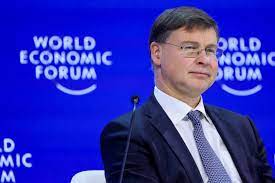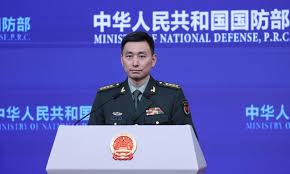EU ‘absolutely willing’ to use trade tools against China to fight unfair practices as bloc launches train probe

Munich: The European Union is “absolutely willing to use” its suite of trade tools to combat perceived unfair competition from China, a top official said in Munich on Saturday.
A day after Brussels launched its first investigation into Chinese state-owned train maker CRRC over state subsidies, EU competition chief Margrethe Vestager said it had an obligation to put the weapons to use.
“These are the early days of this investigation, but it is a very important signal to the business community in Europe and outside of Europe, that we’re absolutely willing to use our tools to make sure that we get fair competition,” Vestager told reporters on the sidelines of the Munich Security Conference.
On Friday, the European Commission said it was investigating a subsidiary of CRRC, Qingdao Sifang Locomotive, over a procurement contract with Bulgaria worth €610 million (US$655 million) to provide electric trains.
No urgent EU help for European solar industry to fight cheap China imports
Under the foreign subsidies regulation, companies must flag the state subsidies they have received when bidding for procurement tenders in the EU. In a press release, the commission said there were “sufficient indications that this company has been granted a foreign subsidy that distorts the internal market”.
“We have subsidies all over the planet. I think Europe is the only jurisdiction where we have an elaborate system to control it, so that we know when we spent and how we spent, for what purpose, and that is transparent to competitors who may not get the same,” Vestager said.
Asked whether more investigations could be expected before the European elections in June, Vestager said the timing “cannot matched with an election day” in mind, but that “it must be done on substance, on the case”.
“So I want you to take note of the fact that we’re willing to use it and now the first case when it comes to public tendering is a rail case, but it could have been other sectors as well,” she said.
The rail inquiry marks the latest EU investigation into Chinese business practices. There has been a string of trade investigations, the highest-profile of which targets subsidies in the country’s electric vehicles sector.
Vestager denied, however, that the trade and competition weapons were pointed squarely at China.
“I think you can’t say that we’re not stepping up against China. We’re stepping up against what we see as unfair,” she said, adding that it should not have come as a surprise that the tool had been invoked.
“It has taken some time to get the foreign subsidies instrument ready and I think we have been absolutely transparent about why we would want it and what should be the use of it. Now we have it and now we have an obligation to use it.”
A Chinese business group in Europe “expressed its great disappointment and deep concerns with this investigation”.
“The initiation of an in-depth investigation … has sent a discouraging message to Chinese investors intending to cultivate and operate in the EU market,” read a statement from the China Chamber of Commerce to the EU.





